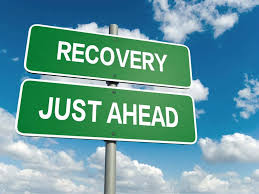The Impact of Behavior Patterns on Our Lives
Behavior patterns play a significant role in shaping our daily lives and influencing our actions, decisions, and interactions with others. These patterns are the recurring ways in which we behave in various situations, often unconsciously. Understanding and recognizing our behavior patterns can lead to personal growth, improved relationships, and enhanced well-being.
Types of Behavior Patterns
There are various types of behavior patterns that individuals may exhibit:
- Habits: Habits are routine behaviors that we perform automatically, often without conscious thought. They can be both positive (such as exercising regularly) and negative (such as smoking).
- Reactions: Reactions are immediate responses to external stimuli or triggers. These responses can be emotional (like getting angry in traffic) or physical (like flinching at a loud noise).
- Communication Styles: Communication styles encompass how we express ourselves verbally and non-verbally. This includes our tone of voice, body language, and choice of words.
- Coping Mechanisms: Coping mechanisms are strategies we use to deal with stress or difficult situations. These mechanisms can be adaptive (like seeking social support) or maladaptive (like substance abuse).
The Influence of Behavior Patterns
Our behavior patterns can have a profound impact on various aspects of our lives:
- Personal Growth: Recognizing and modifying negative behavior patterns can lead to personal growth and self-improvement.
- Relationships: Our behavior patterns influence how we interact with others, affecting the quality of our relationships.
- Mental Health: Maladaptive behavior patterns can contribute to mental health issues like anxiety and depression.
- Productivity: Positive behavior patterns can enhance productivity and goal achievement.
Cultivating Positive Behavior Patterns
To cultivate positive behavior patterns, consider the following strategies:
- Awareness: Pay attention to your behaviors and reactions to identify any negative patterns.
- Mindfulness: Practice mindfulness to stay present and consciously choose your actions.
- Social Support: Seek support from friends, family, or professionals to help you modify harmful behavior patterns.
- Rewards System: Reinforce positive behaviors by rewarding yourself for making healthy choices.
In conclusion, understanding our behavior patterns is essential for personal development and well-being. By recognizing these patterns and actively working towards positive change, we can lead more fulfilling lives and create healthier relationships with ourselves and others.
Understanding Behavior Patterns: FAQs on Recognition, Influence, and Improvement
- What are behavior patterns?
- How do behavior patterns influence our daily lives?
- What are the types of behavior patterns people exhibit?
- How can I recognize my own behavior patterns?
- Do behavior patterns change over time?
- Can behavior patterns be modified or improved?
- What impact do negative behavior patterns have on mental health?
- Are there strategies to cultivate positive behavior patterns?
- How do behavior patterns affect relationships?
What are behavior patterns?
Behavior patterns refer to the consistent and repetitive ways in which individuals behave in various situations. These patterns can encompass a wide range of actions, reactions, habits, and communication styles that characterize how we interact with the world around us. Behavior patterns are often ingrained and can be influenced by factors such as upbringing, experiences, beliefs, and personality traits. By understanding behavior patterns, individuals can gain insight into their own tendencies and reactions, leading to opportunities for personal growth, improved relationships, and enhanced self-awareness.
How do behavior patterns influence our daily lives?
Behavior patterns have a profound influence on our daily lives, shaping the way we navigate and interact with the world around us. These patterns, often ingrained through repetition and experience, dictate how we respond to situations, make decisions, and engage with others. From our habits and reactions to our communication styles and coping mechanisms, behavior patterns impact various aspects of our personal and professional lives. By understanding and recognizing these patterns, we can gain insight into our behaviors, make conscious choices for positive change, and ultimately enhance our well-being and relationships.
What are the types of behavior patterns people exhibit?
There are various types of behavior patterns that people exhibit in their daily lives. These patterns include habits, reactions, communication styles, and coping mechanisms. Habits are repetitive behaviors that individuals perform automatically, whether positive or negative. Reactions refer to immediate responses to external stimuli, which can be emotional or physical. Communication styles encompass how individuals express themselves verbally and non-verbally. Coping mechanisms are strategies used to deal with stress or challenging situations, ranging from adaptive approaches like seeking social support to maladaptive methods such as substance abuse. Recognizing and understanding these different types of behavior patterns can help individuals navigate their interactions with others and promote personal growth and well-being.
How can I recognize my own behavior patterns?
Recognizing your own behavior patterns involves self-awareness and observation of your thoughts, emotions, and actions in various situations. Start by reflecting on recurring behaviors or reactions that you notice in yourself, especially in response to specific triggers or stressors. Keeping a journal can help track patterns over time. Pay attention to your habits, communication style, coping mechanisms, and emotional responses. Seeking feedback from trusted friends or a professional can provide valuable insights into your behavior patterns that you may not have noticed on your own. By actively observing and reflecting on your behaviors, you can begin to recognize and understand your own behavior patterns more clearly.
Do behavior patterns change over time?
Behavior patterns can indeed change over time. As individuals grow, learn, and experience new things, their behaviors may evolve accordingly. Factors such as personal development, environmental influences, life events, and intentional efforts to modify behavior can all contribute to the transformation of behavior patterns. While some behaviors may be deeply ingrained and challenging to change, with awareness, effort, and support, individuals have the capacity to adapt their behavior patterns for personal growth and improvement. It is important to recognize that change is a gradual process that requires patience and persistence.
Can behavior patterns be modified or improved?
Behavior patterns can indeed be modified and improved through conscious effort, self-awareness, and consistent practice. By recognizing negative or maladaptive behavior patterns, individuals can take proactive steps to change them. This process may involve seeking support from a therapist, counselor, or coach to gain insights into the underlying causes of these patterns and develop strategies for modification. With dedication and commitment, individuals can replace harmful behavior patterns with healthier alternatives, leading to personal growth, improved relationships, and overall well-being.
What impact do negative behavior patterns have on mental health?
Negative behavior patterns can have a significant impact on mental health. When individuals engage in destructive behaviors such as self-criticism, avoidance, or substance abuse, it can lead to increased stress, anxiety, and depression. These negative behavior patterns can create a cycle of negative thoughts and emotions that further exacerbate mental health issues. Over time, untreated negative behavior patterns can contribute to the development or worsening of conditions like anxiety disorders and mood disorders. Seeking support and intervention to address and change these harmful behavior patterns is crucial for maintaining good mental health and overall well-being.
Are there strategies to cultivate positive behavior patterns?
Yes, there are strategies to cultivate positive behavior patterns. One effective approach is to start by increasing self-awareness of your current behaviors and identifying any negative patterns that you want to change. Mindfulness techniques can help you stay present and consciously choose your actions, allowing you to break free from automatic or reactive behaviors. Seeking social support from friends, family, or professionals can provide encouragement and guidance as you work towards modifying harmful behavior patterns. Additionally, implementing a rewards system for yourself can reinforce positive behaviors and motivate you to continue making healthy choices. By incorporating these strategies into your daily routine, you can actively cultivate positive behavior patterns that contribute to personal growth and well-being.
How do behavior patterns affect relationships?
Behavior patterns play a crucial role in shaping and influencing relationships. Our habitual ways of behaving, reacting, and communicating can have a significant impact on the dynamics and quality of our interactions with others. Positive behavior patterns such as active listening, empathy, and effective communication can foster understanding, trust, and connection in relationships. On the other hand, negative behavior patterns like defensiveness, criticism, or avoidance can lead to misunderstandings, conflicts, and distance between individuals. By recognizing and modifying harmful behavior patterns, individuals can improve their relationships by promoting mutual respect, cooperation, and harmony.



